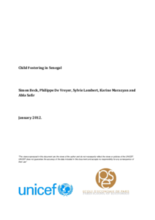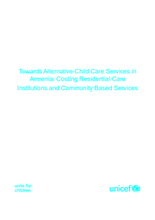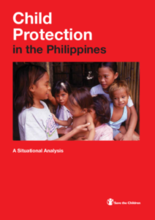Displaying 511 - 520 of 608
This paper paves the way to ensuring that challenges faced by informal caregivers are addressed in a manner that will make them more supportive to orphans.
This article reviews the emerging literature on transnational parenthood, concentrating on six themes: gender, care arrangements, legislation, class, communication and moralities.
Using data from a nationally representative household survey conducted in Senegal in 2006-2007, the survey Pauvreté et Structure Familiale, this paper studies the long-term outcomes for adults who have been fostered in their childhood, including children fostered to Koranic schools. It focuses its analysis on education, first employment and current employment as well as on marriage. Findings show that the long-term impacts of fostering are heterogeneous and depend on various reasons including the locations of fostering, host parents, fostering age, and gender.
Using a nationally representative household survey conducted in 2006-2007 in Senegal, this study sheds light on the common practice of fostering (confiage) by examining the characteristics of households and individuals involved in fostering, the motivation for fostering and its impact on host households, sending households, and the foster child, with a focus on education, employment and marriage outcomes.
In this article, the microsimulator SOCSIM is used to estimate and project quantities such as the number of living uncles, aunts, siblings, and grandparents available to orphans in Zimbabwe.
The authors of this article carried out a follow-up study of 143 young adults leaving kinship care. They assessed the young adults’ transition to adulthood with interviews and questionnaires. A small part of the sample presented serious problems of social exclusion. Seventy percent had found employment or were in higher education. The youth had frequently suffered the loss of foster carers and lack of support.
This recent study by UNICEF in Armenia costed different types of residential care and community based services.
The paper examines elements that must be in place to ensure that foster care is effective, including legislative frameworks and a trained child welfare workforce. It consider principles for good practice in foster care, with a particular focus on examining how such principles can be applied in resource constrained settings.
This situational analysis was commissioned by the Child Protection Initiative as a preliminary exercise to develop evidence-based recommendations to guide Save the Children in the Philippines to develop interventions. Priority areas are children in residential care, children in armed conflict and disasters, children in situations of migration (including for trafficking purposes), and children in exploitative and hazardous work conditions.
This manual offers a training session targeted at policy makers, professionals and paraprofessionals who are already working on programs to support children without appropriate care, or who may begin work in this area. This workshop focuses on children in developing contexts, who require support within their families and those who need an alternative care placement.






